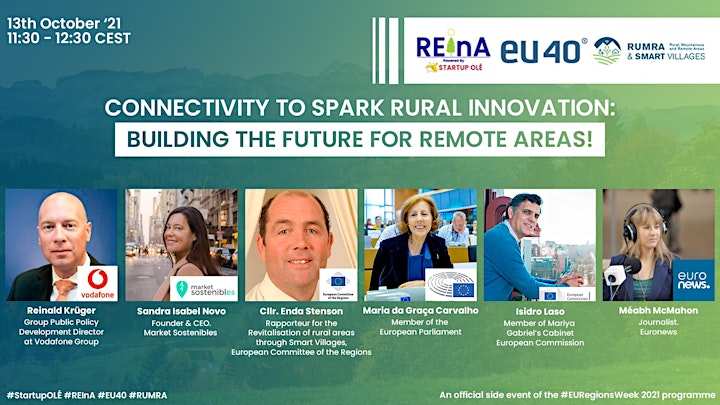
Europe has a long-term vision for rural areas. Outlined in a European Commission initiative are plans for rural areas that are stronger, more connected, more resilient, and more prosperous. Key points within these areas include innovative solutions for the provision of services, improved public transport and digital infrastructure, increasing resilience to climate change, and extending digital literacy within these rural communities.
The need for this vision to become a reality was illuminated early on in the “Building the Future for Remote Areas” discussion: one of the speakers, Enda Stenson, had to travel a couple of miles to access a good enough internet connection to participate in the online panel. As mentioned later by Reinald Krüger, rural areas account for 30% of Europe’s population. Clearly, this is a significant amount, and this number of people can simply not be left behind when it comes to policymaking.
MEP Maria de Graça Carvalho was able to outline how member states are the ones to implement the planning and budget that come from EU initiatives, and how it can sometimes be the case that less visible initiatives are left behind. Of course, they are still evidently necessary. All of the speakers recognised the work being done to improve visibility around this need for digitalisation, and it is reflected in current EU policies that, bit by bit, this improvement is being realized.

Although for now, a gap between urban and rural areas still exists, which was outlined by Market Sostenibles founder Sandra Novo, who explained that small businesses are aware of the need to transform digitally, and have the appetite for it, but many lack the necessary infrastructure. This had become especially clear during the Covid-19 pandemic, where a lack of market access was a problem for many Small and Medium Enterprises (SMEs). These SMEs felt that they were being left out of larger supply chains – a problem that inspired the Market Sostenibles project to be born.
Despite the continued need in some rural areas, progress is currently being made by various public and private actors. Isidro Laso discussed the Startup Village Forum, and Reinald Krüger gave the Vodafone-powered Ludgate Hub in Skibbereen, Ireland, as an example. According to the hub’s website, 146 jobs have been created and there has been a €4 million contribution to the local economy. As a traditionally rural area, this is wonderful news for Skibbereen, and it can hopefully serve as a positive blueprint for other towns like it.

In summary, there is a vision to build a better rural Europe, and through the combined effort of public actors, private actors, and civil society, this vision can be made a reality. It will take hard work, innovation, and collaboration, but we at Market Sostenibles believe it will be worthwhile.
We would like to thank Rural European Innovation Area (REInA) for the invitation to join this discussion, and also to acknowledge the other participants, distinguished key players in the European innovation ecosystem:
Isidro Laso Senior Member of the Cabinet of Commissioner Mariya Gabriel, European Commission
Maria Da Graça Carvalho, Member of the European Parliament
Cllr. Enda Stenson, Rapporteur for the Revitalisation of rural areas through Smart Villages, European Committee of the Regions
Reinald Krüger, Group Policy & Public Affairs Director, Vodafone
Méabh Mc Mahon (Moderator), Journalist at Euronews
Thank you as well to the event organisers – EU40, RUMRA and Startup Olé.













